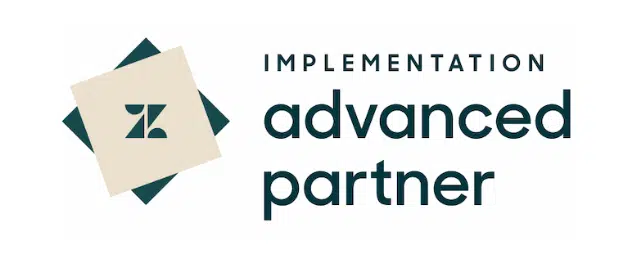Zendesk is used by a large number of companies that must comply with the General Data Protection Regulation (GDPR). Through active use, customer data is stored in Zendesk.
The Leafworks GDPR app allows for the privacy-compliant use of Zendesk ticket data within analytics and reporting. In the following article you will learn how the app works and why data protection compliant handling of customer data and Zendesk tickets is essential.

Why do I need an app? I could simply delete personal data
Zendesk itself does not offer a native way to automatically clean up tickets and thus also personal data. This means that it is not possible to guarantee compliance with the GDPR, which is a problem for many companies. Likewise, simply deleting the data is not a solution, since it is needed as a basis for evaluations of the key figures.
This is exactly where our GDPR app comes in
The app enables users to handle their customers’ personal data in a GDPR-compliant way without having to give up important key figures. The Leafworks GDPR app anonymizes sensitive ticket data without deleting the Zendesk ticket. This allows you to use the remaining data for your reporting and analytics without violating the guidelines of the General Data Protection Regulation (GDPR).
Here’s what our GDPR app can do:
- Automatically anonymizes all personal information on the ticket
- Definition of tickets to be purged via ticket views
- Deleting users after all tickets have been anonymized
- Saving the metrics for use in Explore Reports
- Configuration of which ticket fields (custom fields) should be automated
- Targeted exclusion of specific users via keywords
You would like to anonymize your tickets? Contact us.
Why is the General Data Protection Regulation important for individuals and also for companies?
The GDPR (General Data Protection Regulation) is a law that protects the personal information of people in the European Union (EU). It ensures that companies and organizations that collect this information are responsible and clear about what they do with it.
People have the right to know what information is being collected about them, why it is being collected and with whom it is being shared. They also have the right to ask that their information be deleted or corrected and to say that their information should not be used for certain things. The GDPR helps ensure that all of this happens in a fair and secure way.
In simple terms, the GDPR helps protect the personal information of people in the EU and ensure that companies and organizations handle it responsibly.
Why is reporting so important?
Reporting is important because it provides an overview of the performance and progress of an organization or project. Regular reporting helps to identify where there are problems and where improvements need to be made. Reports can also be used to make decisions by looking at past performance and trends.
In addition, reporting can help create transparency and accountability. Regular reports can show stakeholders, such as customers, investors, or regulatory authorities, what an organization has achieved and how it pursues its goals. This can help stakeholders feel more connected to an organization and trust it more.
In summary, reporting is an important part of monitoring and controlling organizations and projects, and helps to ensure that decisions are made on a solid foundation.

